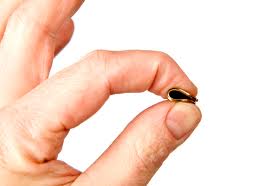Have you ever been called “cheap” by someone whose spending is out of control? How do you react? Hopefully, you can simply smile and consider this designation as a backhanded affirmation that your frugality is being noted. Of course you may indeed be a cheapskate: always pinching every penny, never being satisfied with however much money you have accumulated, and basically living a self centered life. But, assuming you are simply a financially responsible person, reality is that you will often be misunderstood by those who live for today with no regard for the future. There is a huge difference between frugality and cheapness; the first is a quality to be sought while the latter is one to be avoided. When your associates call you cheap, remember that the problem is theirs, not yours. In fact, learning to be frugal can prevent you from needing to be unnecessarily tight in the wallet. This is because when you’re financially organized you’re aware of your discretionary funds, and can make snapshot decisions about what you can expend money on and what you can’t, without hesitation or waffling. Here are a few sage ways to embrace frugality and financial responsibility…without being cheap:
Get an overview of your financial situation.
This is the pivotal and necessary first step. You can’t possibly know your situation until you look objectively at all your accounts, debts, credit lines, loans, taxes, mortgages, income and monthly payments. You may need the assistance of a financial advisor who can help you sift through all this cumbersome paperwork and offer meaningful analysis. At that point, you can expect a recommendation for the best way to move forward as well as a professional assessment of your options.
Reign in unnecessary purchases.
This is just as critical as the overview. Excess spending is an epidemic in this country which has caused many people to fall into crippling debt and financial uncertainty. If you’re living paycheck to paycheck—or even enjoying a nice monetary cushion—you must eliminate luxury spending, which you are almost certain to be subsidizing with a credit card. Don’t live on the edge of your income; instead, base your spending on what you need and what is vital to your day to day well-being.
Plan for the future.
It sounds cliched, but cliches are borne of kernels of the truth. Whether you’re unemployed, working for minimum wage or garnering a solid salary, it’s imperative that you think about ways to save for the future. Even if you can only squirrel away $50 a month, creating a savings account and investing money into it will add up in the long run. Savings accounts are also great ways to build credit and establish financial confidence.
Frugality is not the same as being cheap. Frugality is about financial responsibility, not failing to chip in on a restaurant tip. Start taking the steps now toward getting an overview of your situation, controlling your expenses, and planning for the future.
Readers: Have YOU ever been called cheap? How did you respond?


Leave a Reply